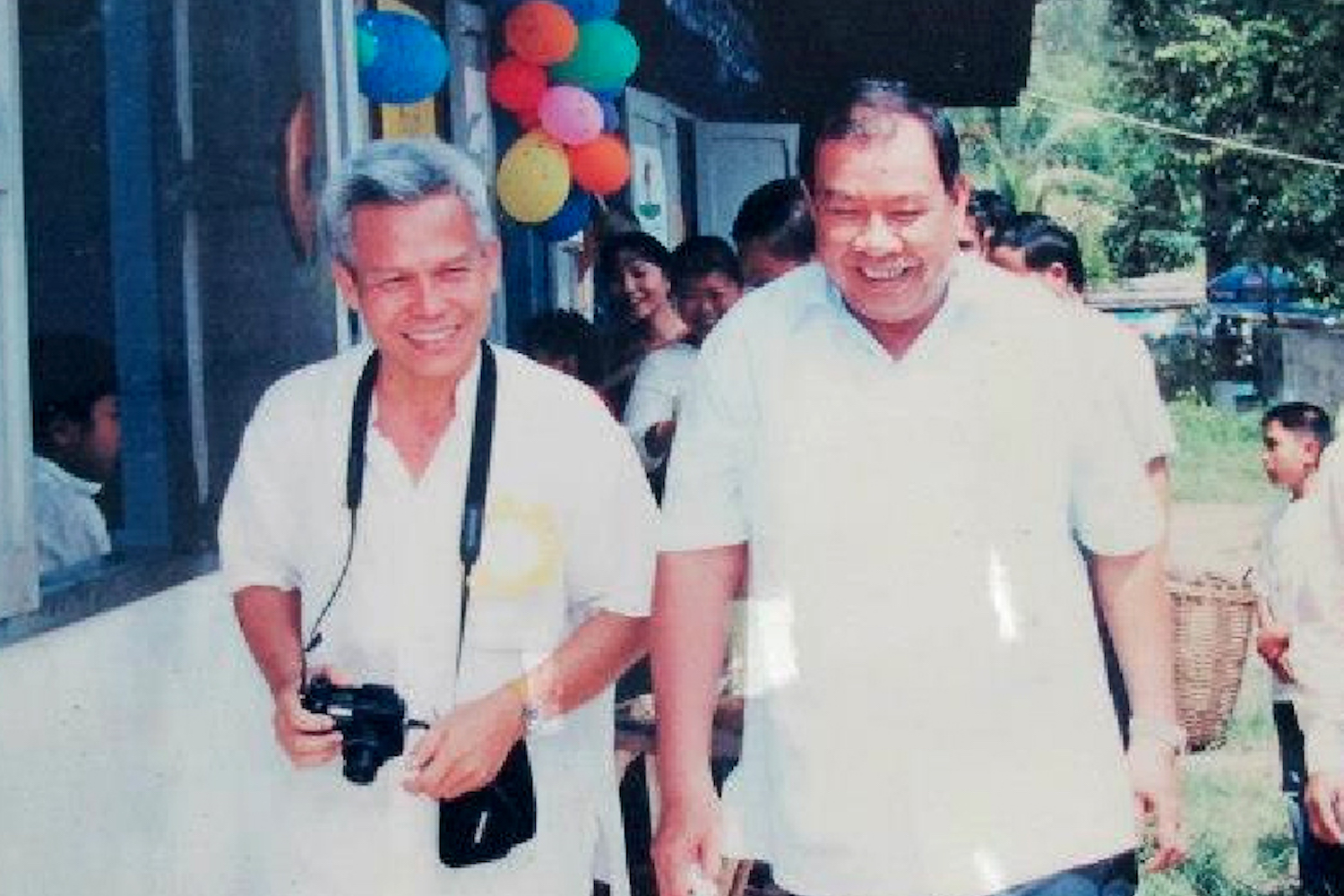Prachathai: 12 December 2014
Thaweeporn Kummetha
Two years after the abduction of the prominent, internationally acclaimed Lao development worker Sombath Somphone by Lao state agents, the Lao government has done very little to find the truth, experts say. Meanwhile, the disappearance and lack of justice has effectively created a climate of fear which has worsened the human rights situation in Laos.

“Today marks 726 days, four days short of two years, since Sombath has been taken away from me and my family,” Shui Meng Ng, the wife of Sombath, said at a seminar ‘Sombath Somphone Missing for Two Years’ in Bangkok on Thursday. “Even after the 726 days, the shock, the pain, the anguish have not lessened. In fact, the anxiety has grown with each passing day. Some people sometimes ask me ‘Do you think Sombath is still alive?’ My answer is ‘I can only hope that he is still alive’. Without that hope, I will not have the strength to get up each day”
On 15 December 2012, CCTV at a police checkpoint in Vientiane recorded footage that shows that state agents abducted Sombath at the checkpoint. His car was stopped and then he was escorted into a truck. No one has seen him since.
Although his work is recognized by the international community, Sombath worked strictly only in areas related to development and the environment and had avoided areas of human rights and politics which are extremely sensitive in Lao, governed by a single party, the Lao People’s Revolutionary Party.
One of the events that led to the disappearance is believed to be the Asia-Europe People’s Forum (AEPF) which Sombath helped organize in October 2012, during which several speakers took the opportunity to criticize the human rights situation in Lao.
While the International Commission of Jurists (ICJ) believe that this disappearance is in fact an enforced disappearance, meaning the deprivation of liberty by state agents, the Lao government has always denied involvement in the disappearance and speculated that this was merely due to “a personal conflict or a conflict in business,” a rather clichéd explanation.
“The fact that the Lao PDR government’s last report on the progress of the investigation was released over 18 months ago raises serious concerns as to whether the Laotian authorities are in fact carrying out an effective investigation into this case,” said Sam Zarifi from the ICJ.
While experts say the case is ‘eminently solvable’ if a proper investigation is conducted, what the Lao government has done is “wholly inadequate” and “has not come anywhere close to a credible explanation as to his fate and whereabouts,” Zarifi said.
As if the enforced disappearance of Sombath has not sent an enough of a frightening message to civil society workers and Laotians, the government is in the process of issuing new laws which will further restrict civil society work and freedom of expression.
Two decrees which will have a huge effect are a decree on association and a decree on information on the internet, according to Matilda Bogner, from the Office of the High Commissioner for Human Rights (OHCHR).
For example, the Lao government is amending the decree on association under which civil society organizations have to report their work to the state and also their foreign funding.
In September 2014, the government passed an internet-based information control decree which has several hugely vague terms, which will create room for abuse of power by the authorities. For example, paragraph one of the decree prohibits the dissemination of false or misleading information against the party or the government. Paragraph 3 prohibits the provision of untrue information with the aim of undermining social unity and solidarity.

The decrees lead to serious concerns in terms of freedom of expression and the freedom of civil society workers to operate in the country, said Bogner.
The OHCHR representative added that a working group on enforced disappearances based in Vientiane has recorded eight cases of enforced disappearance, only five of which were clarified by the state.
Shui Meng said the enforced disappearance of Sombath created a climate of fear among civil society workers when even a non-violent, non-confrontational high-profile civil society worker who has never intended to enter politics like Sombath can be disappeared. The disappearance created even more uncertainty over where is the line of what can and cannot be done in Lao. Some people have quit NGOs jobs as they fear they may some day meet the same fate as Sombath.
“Sombath throughout his life thought he was working in non-controversial areas. He wasn’t taking up any political causes, he wasn’t challenging the government. He had no intention to enter politics. And when that happened to him, people say, if this can happen to Sombath, this can happen to anyone” said his spouse.
[youtube https://www.youtube.com/watch?v=KcUq09Frq4Y]
